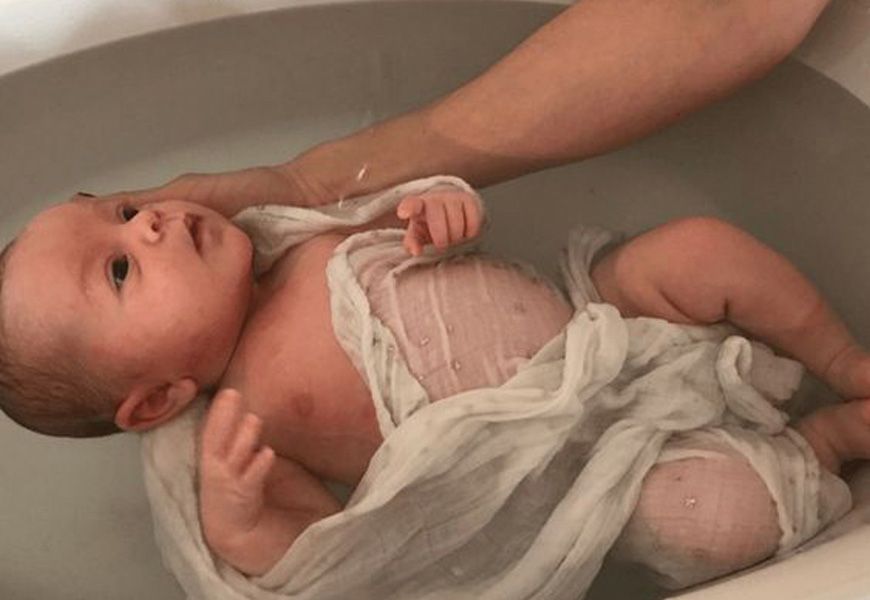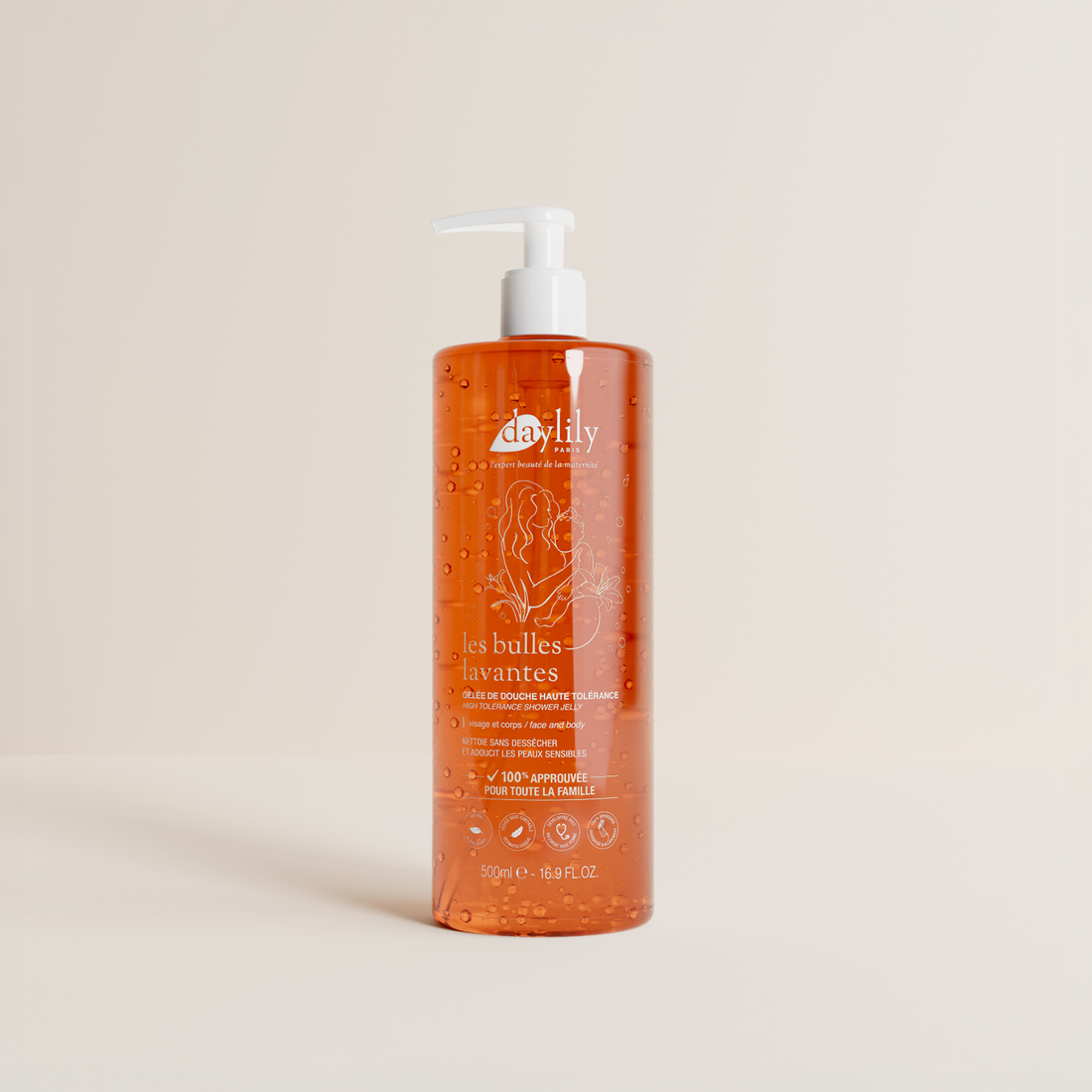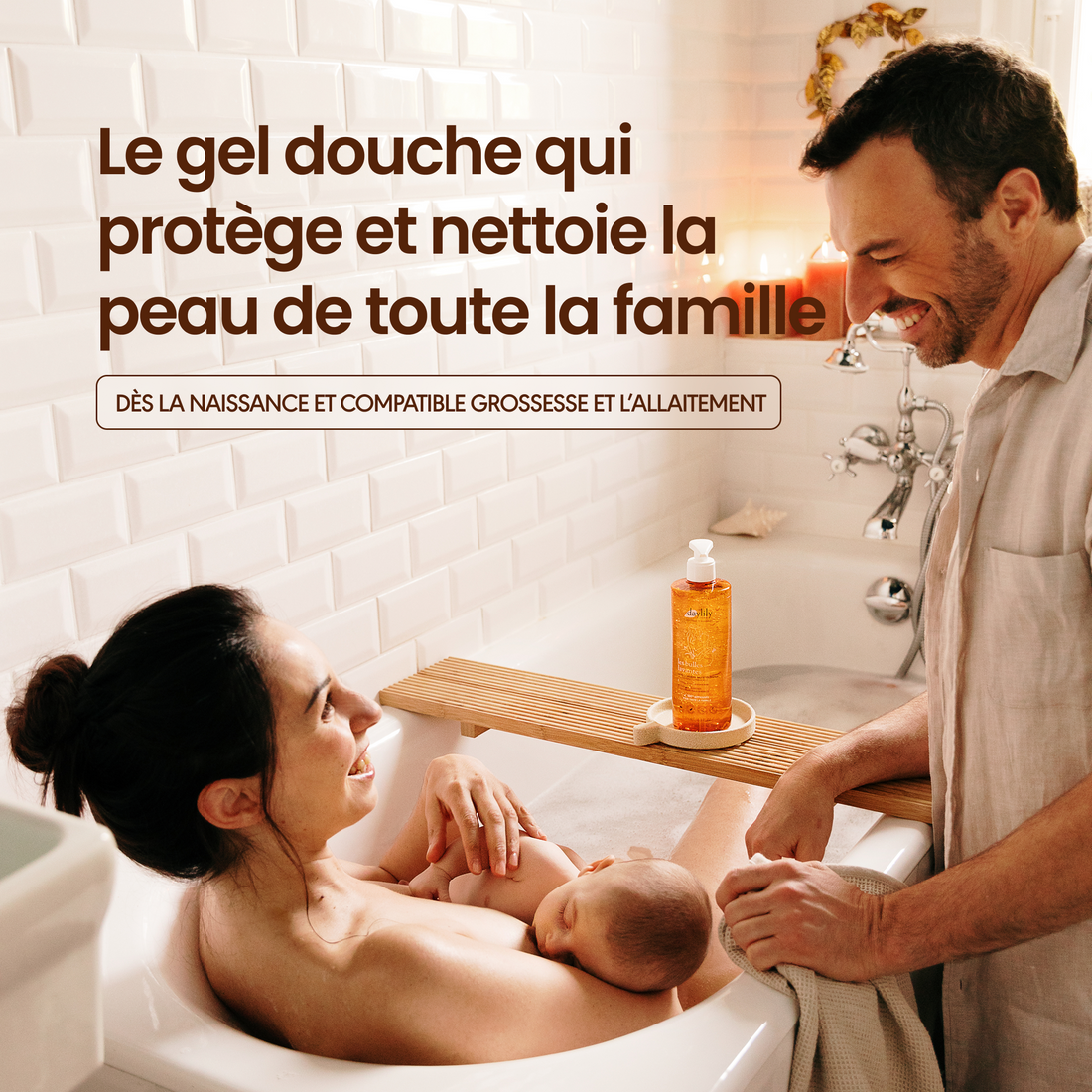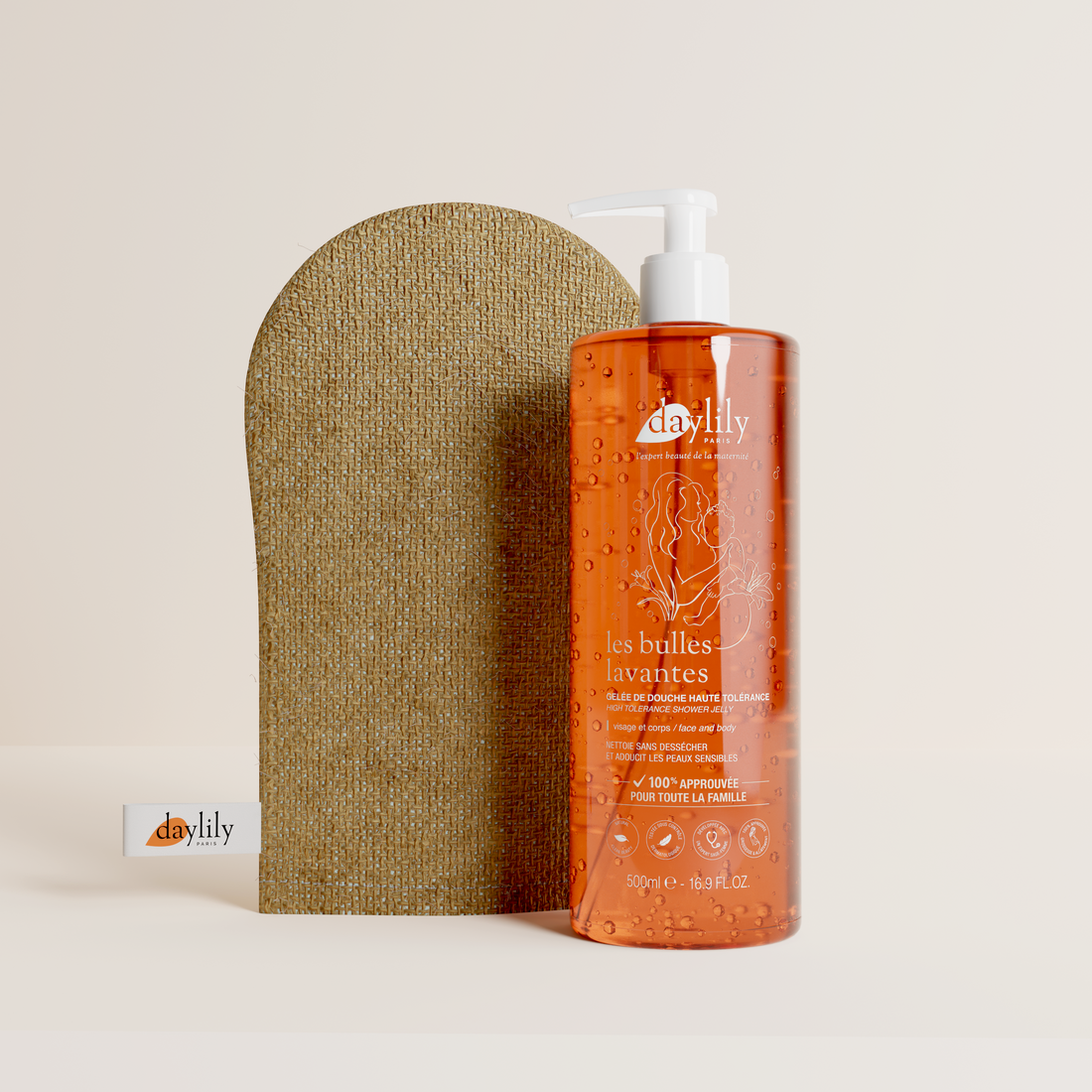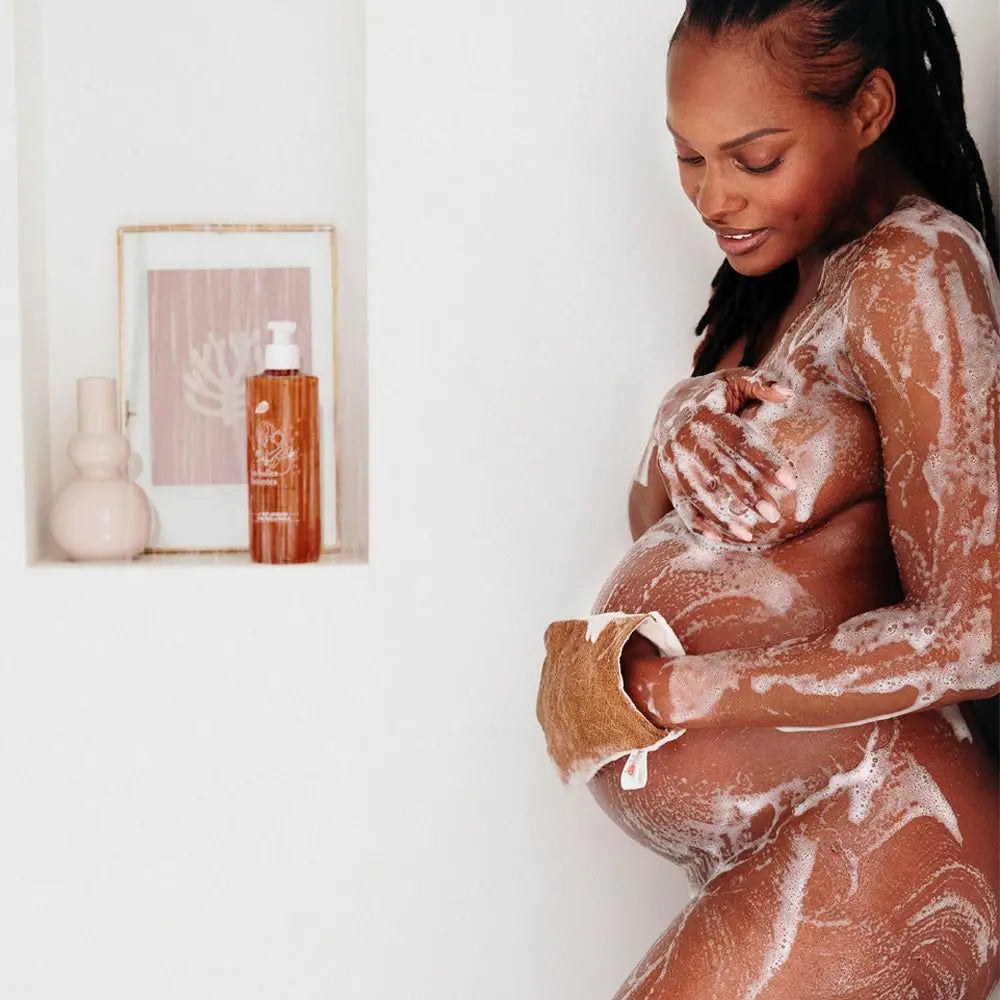When to give your baby your first bath?
Contrary to what one might believe, the first bath does not take place immediately after childbirth. The midwife in charge simply cleans the newborn very quickly, to limit heat loss and place him against you as quickly as possible, for your first skin-to-skin session. In France, the first bath is given between the first and third day following birth , that is to say logically during your stay in the maternity ward. You will therefore normally be supported by a childcare midwife, who will show you good practices for washing your baby and making him discover and love water !

You should know that in certain other countries, such as the United States, the first bath occurs much later. The reason ? At birth, baby's skin is covered with a greasy, whitish substance, vernix caseosa. The role of the vernix is to protect the infant's skin in the mother's womb, and during its first days of life, to help it regulate its temperature . You can therefore delay the first bath and just carry out umbilical cord care and a basic cleansing with a cotton pad . This allows the vernix to penetrate for a few days to give baby the benefit of its protective and moisturizing properties!
Baby's first baths: how to go about it?
Perhaps, during your childbirth preparation classes, you have addressed the theme of infant care and hygiene, by simulating bathing with a plastic doll in a baby bathtub. However, moving from theory to practice is not always easy, and can even be destabilizing if the little one struggles or cries... Here are some tips to ensure that everything goes as smoothly as possible.
First rule to follow: give the bath in a well-heated room , between 21 and 24°C, because baby is not yet able to regulate his temperature and cools down quickly when you undress him. This is why the first baths should be quick : make sure you have all the items at hand (towel, cleansing products, change of clothes, diapers, etc.) before starting. Bath water, for its part, must be heated to 37°C , hence the interest in investing in a bath thermometer to be sure that it will be neither too cold nor too hot.
You can bathe the newborn in a special baby bathtub, or even in a washbasin or sink (of course the tub must be very clean !): the idea is really that the baby feels safe, and not lost in too big a space. Remember that he is discovering the bath for the first time, and all the sensations – sometimes confusing – that go with it!

To hold baby securely and keep him safe, place one arm under his neck and grab his shoulder with your hand. The idea is to form a “gripper” with your thumb and index finger , to prevent it from slipping in the water. With your other hand, gently wash baby's body and hair, paying particular attention to the folds, and rinse him . You can simply use water , or cleansing products specially formulated for babies , without ingredients harmful to their health. If you choose a soap wash, make sure it is superfatted , with a formula designed for infants. Les Bulles Lavantes shower jelly is suitable for baby's sensitive skin, protecting it from drying out and tightness, and respecting its pH and the hydrolipidic film. Rated 100/100 on Yuka, it is suitable from birth.
If you are in the maternity ward, you will be supervised by a childcare midwife who will supervise bathing time, then care of the umbilical cord and cleaning of the face (eyes and ears). Don't hesitate to ask him your questions, practice it yourself, or even invite the future dad so that he too can become familiar with these new gestures. You will be even more comfortable when you return home, when you have to bathe your baby alone!
You may be wondering what time is best to bathe your baby? In reality, there are no real rules and the best time is the one that best suits your organization and baby : observe his reactions to see if he is comfortable. However, it is recommended to give the bath away from feedings or bottles : bath time is full of stimuli for the child, and as such, even if it only lasts a few minutes, it is also often extremely tiring for baby, who may not be very motivated to breastfeed immediately afterwards. It is better to allow time for rest or sleep after the bath to let the newborn recover.
Rest assured: this does not go against hygiene standards. A newborn gets dirty little and sweats much less than an adult. Spacing out baths and not immersing your baby in water every day will help preserve their fragile, permeable and very sensitive skin. In the meantime, you can clean baby quickly with a cotton pad if necessary !
You now have all the keys in hand to make bath time a real moment of relaxation and bonding between parents and child !
Photo credit: Pinterest

